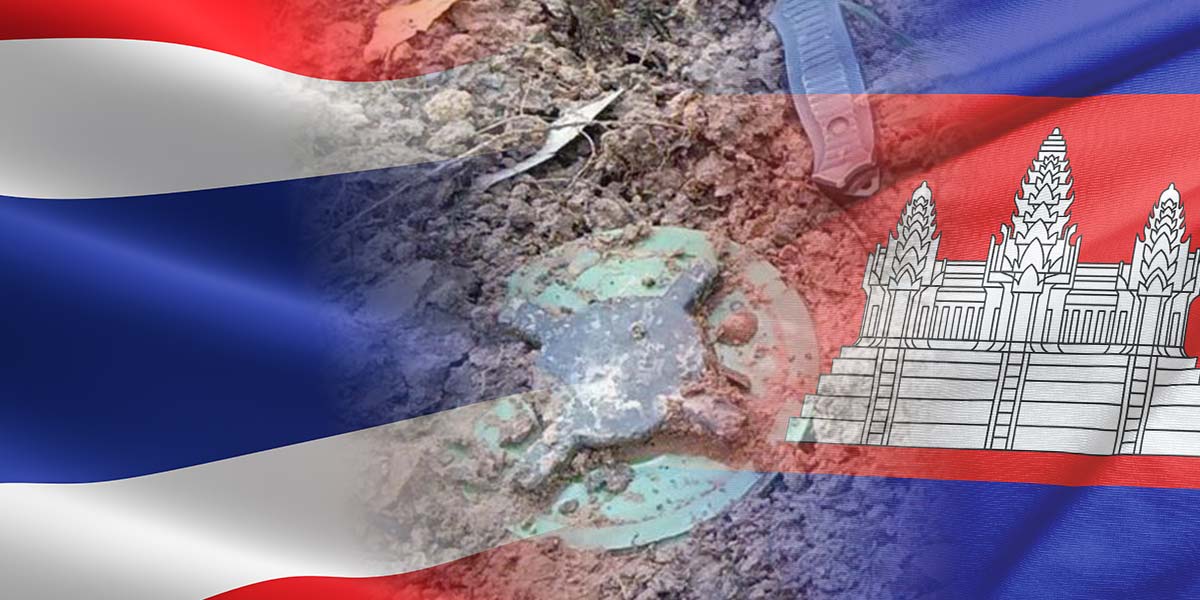The Thai government has received a report from its security agencies detailing the results of official investigations revealing that the recently discovered landmines were neither utilized nor stored within Thailand’s arsenal. The evidence indicates that these anti-personnel mines were newly laid.
After further analysis of this data and environmental circumstances by relevant security bodies, it has been concluded that this constitutes a deployment of anti-personnel mines—a grave violation of international law.
The Thai government issued its sternest condemnation of the use of anti-personnel landmines, calling it a violation of Thai sovereignty and territorial integrity.
This act contravenes the fundamental principles of international law, as enshrined in the United Nations Charter, while also constituting a direct breach of obligations under the Mine Ban Treaty (Ottawa Convention) to which both Thailand and Cambodia are signatories.
As a State Party to the Ottawa Convention, Thailand will proceed in accordance with the Treaty’s mechanisms, seeking to resolve this issue with Cambodia through existing bilateral frameworks. Thailand calls on Cambodian authorities to fully cooperate in joint humanitarian mine clearance operations along the border, as previously agreed upon by both Prime Ministers during bilateral discussions.
Thailand Mine Action Center (TMAC) of the Royal Thai Armed Forces, has released a statement condemning Cambodia’s clandestine laying of anti-personnel mines in the Thai border area of Chong Bok, Nam Yuen District, Ubon Ratchathani Province—an area under Thai sovereignty. This attack injured three Thai personnel, one of whom suffered a permanent disability from the loss of a limb.
The TMAC reaffirmed its strong opposition to any actions infringing upon the obligations and norms of the Convention on the Prohibition of the Use, Stockpiling, Production and Transfer of Anti-Personnel Mines and on their Destruction (Ottawa Convention or Mine Ban Treaty).
It emphasized that as both Thailand and Cambodia are states parties to this treaty, both are fully committed to its terms, including the total cessation of use and stockpiling of anti-personnel mines as well as the clearance and destruction of all remaining mines for the long-term safety and wellbeing of their populations.
The TMAC urged Cambodia to assume responsibility for the incident in a clear and tangible manner, to conduct a thorough investigation, to undertake legal action against all those involved, and to implement concrete measures to prevent the recurrence of such acts in the future.
Additionally, the TMAC urged Cambodia to cease obstructing Thai mine clearance operations along the border and to offer sincere cooperation on humanitarian mine clearance efforts. Such actions would instill confidence and ensure safety and security for citizens of both countries, while also reflecting the spirit of shared responsibility as states parties to the Ottawa Convention.




